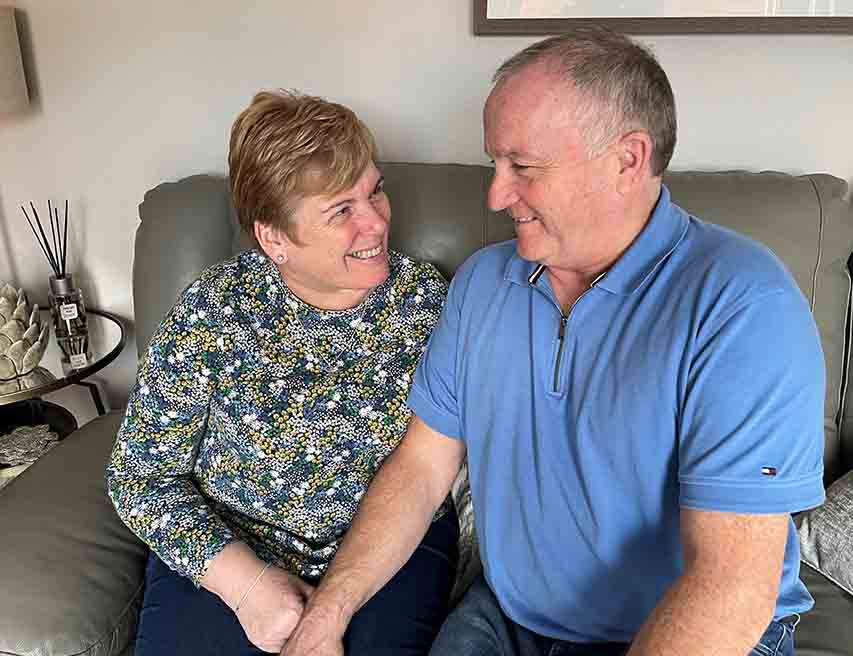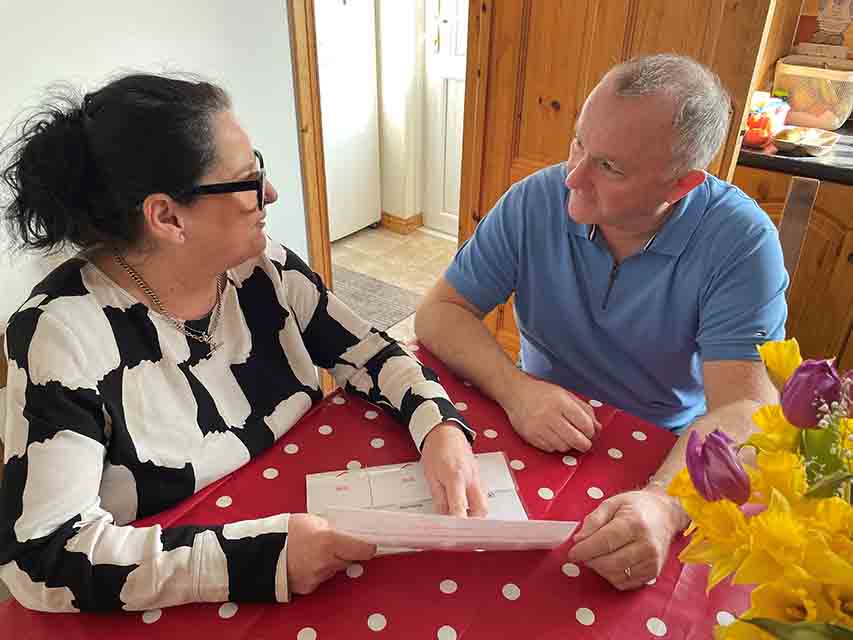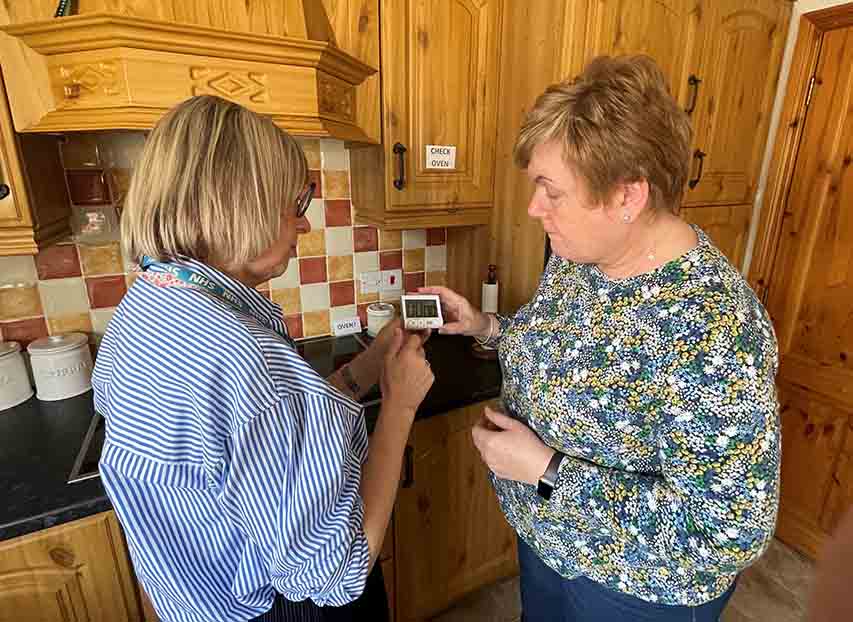Patients and families benefit from South Eastern HSC Trust community brain injury rehabilitation team
“It’s been a journey, a journey of recovery but one we didn’t travel alone as we had the Brain Injury Team in the South Eastern Trust to support us.”
March marks Brain Injury Awareness Month and it provides an opportunity to highlight the resilience and strength shown by individuals and families facing the challenges of a brain injury.
Among them is Ken White, a devoted husband to Lynda who underwent major surgery on her brain to remove a tumour.
Their experience highlights the critical importance of support systems and the dedication of healthcare professionals such as the Community Brain Injury Rehabilitation Team.

As Lynda underwent life-altering surgery on her brain, leaving her and her husband Ken facing an uncertain road ahead, they both found unwavering support from the Community Brain Injury Rehabilitation Team.
From assistance to emotional support, the team has been instrumental in guiding them through this difficult time.
Reflecting on Lynda’s journey and the incredible support they received from the team, Ken said: “After the initial shock of Lynda coming through major brain surgery, it was discovering the long-term effects.
“After she came out of hospital, there was a visible scar from Lynda’s surgery, the fatigue and certain things that didn’t go away.
“Lynda’s functioning and short-term memory have been affected but we were introduced to the Brain Injury Team and they have been an incredible support.
“Without the help and support of the Brain Injury Team, we would have really struggled.
“At the start, I wasn’t keen to take the support offered, but as I realised Lynda’s limitations, the recommendations and the insight provided by the Occupational Therapists became invaluable to help Lynda manage around the home.
“The key phrase I learnt from the team was ‘think invisible’. Lynda was now starting to look herself, especially with her hair growing back.
“We just wanted things to return to normal. In many ways she looked like herself, but there was a gap. We have had to learn a new ‘normal’.

“The team has really helped me to understand ‘Invisible’, it was a huge word.
“Having witnessed how Lynda was struggling with basic tasks, made me realise how important the word “invisible” was, it showed me her brain was restricted in what she could retrieve and the level of detail she could cope with.
“The team gave us some strategies, some aids and adaptations such as timers and alarms to help with cooking tasks, whiteboards for memory recall, routine charts and visual reminders in key areas such as the kitchen. bathroom and bedroom.
“It’s been a long journey. Lynda has now completed her sessions with the team and we are now more comfortable as to who Lynda is now. We have learned some new tricks and learned to live our lives differently.”
Giving advice to those in a similar position, Ken added: “Be patient with yourself and be patient with those who are suffering a brain injury.
“You are on a journey and you will find your way. There is great help out there. The Brain Injury Team is a must.”
The Brain Injury Team comprises Occupational Therapists, Speech and Language Therapist, Physiotherapists, Psychologists, Social Worker and a Rehabilitation Coach.
The Occupational Therapists in the Community Brain Injury Rehabilitation Team provide a programme entitled ‘Tackling Things Together‘ which is a group session for the patient and family members to attend, together with others in a similar position.
“The programme provides an opportunity to get issues out into the open and to discuss challenges.Individual memory and fatigue programmes are also available.”

Highlighting the importance of the support provided by the Brain Injury Team, Occupational Therapy Team Lead, Jill Holden-Downes said: “Involving family members in the recovery journey is vital in terms of the patient’s rehabilitation.
“The Brain Injury Team is involved with the patient for a short period of time in their rehabilitation journey. Interventions are personalised, no person is the same.
“When patients are initially referred to the service, they are confused and generally feel like the rug has been pulled from under them.
“It’s about getting the patient to accept what has happened to them and identify the skills that they possess in order to manage the difficulties they have.
“It never ceases to amaze me to see how wonderful and resilient people are. What we do as a team in comparison is very little.
“I have been so inspired by individuals who are referred to our service. It’s what the individuals do themselves is what matters.
“People make amazing strides forward. They have to acknowledge the small goals and targets they reach. The small targets eventually get them to the goal they want to achieve.
“We ultimately see patients developing their confidence in managing their hidden difficulties and their families supporting them.
“We find we can step back as patients gain confidence and it is so heart-warming to see this.”
·
· Jill Holden-Downes (Occupational Therapy Team Lead) & Ken White
· Romayne Orr (Advanced Clinical Specialist OT) & Lynda White

























